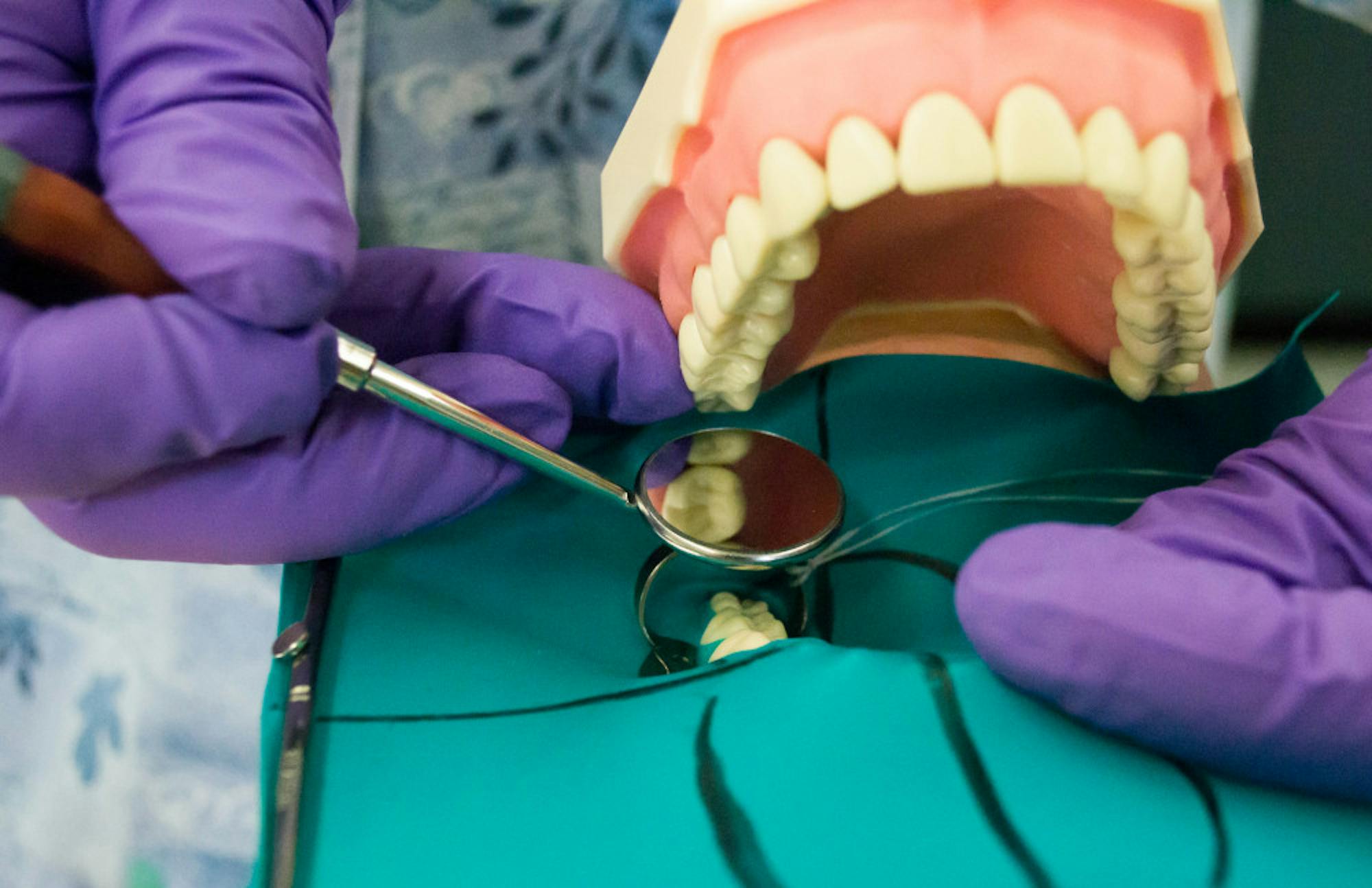The Tufts University School of Dental Medicine will begin enrolling students in its new Advanced Education (Residency) Program in Oral Medicine starting in July 2016, according to Dean of the School of Dental Medicine Huw Thomas.
“It will be an excellent addition to the spectrum of programs we have already,” Thomas said. “It really underscores the interest that we have in a variety of inter-professional initiatives.”
The new program is structured as a two-year post-graduate certificate with the option to do a three-year master’s degree track. It aims to teach students how to treat oral symptoms of various diseases and conditions, according to Interim Program Director Arwa Farag.
“[The goal of the program] is mainly to educate dentists in this discipline where they will be able to serve and help those patients who are medically compromised or suffer a systemic disease with debilitating oral manifestations,” Farag said. “Having dentists who are experienced in this field will help these patients improve their quality of life.”
In this field, dentists treat the oral manifestations of infectious diseases including HIV, autoimmune and immune-related diseases such as lupus and metabolic disorders such as diabetes, Farag said. She explained that these dentists are also responsible for early detection and diagnosis of oral cancer and other malignancies that manifest in the oral cavity.
“Oral medicine links dentistry and medicine together,” Farag said.
Bhavik Desai, assistant professor of oral medicine and temporomandibular joint disorder at the Virginia Commonwealth School of Dentistry, will begin as the program director on July 1, Farag said.
Oral medicine is not yet recognized as a specialty by the American Dental Association; the American Academy of Oral Medicine (AAOM) oversees the discipline and is responsible for certifying dentists in the field, Farag said.
The School of Dental Medicine’s department of oral and maxillofacial pathology, oral medicine and cranofacial pain already includes an oral medicine division headed by Athena Papas.
Papas explained that the Dental School has been treating patients through the Rubenstein Oral Medicine Clinic for almost 40 years, but has never proactively taught dentists how to specialize in the field.
According to Farag, it took Papas over three years to establish the program in compliance with rules and regulations from the AAOM and the Commission of Dental Accreditation (CODA).
The AAOM has encouraged the expansion of training programs, Papas said, because there were only six other dental schools in the U.S. that offer training in oral medicine.
“We hope to establish a very strong educational program at Tufts and expand the reach of oral medicine,” Papas said. “We feel that there’s a real need.”
She added that only three percent of hospitals with cancer programs have oral medicine specialists, and patients are often directed to other departments that are not trained to handle medical issues such as head and neck cancers.
The division of oral medicine at the School of Dental Medicine works closely with oral surgery and oral pathology, Papas said, which strengthens its treatment, research and teaching capabilities.
Residents in the program will work with other clinics such as the Cranofacial Pain Center, which sees 1,500 to 2,000 patients per year and allows residents to gain experience working with patients, Farag noted.
Residents will also be required to do hospital rotations at the Tufts Medical Center in departments including internal medicine, hematology, dermatology and rheumatology, Farag said. They will also have to conduct visitations at the University of Massachusetts Memorial Medical Center and other Tufts facilities that serve patients with related needs.
“We look for people who are really interested in treating patients and learning more about diseases … people who are really enthusiastic about pursuing this career and being an oral medicine specialist, because it’s a little bit different from dentistry itself,” Farag said.
She added that if students choose to continue for a third year, they will do either clinical or laboratory research at the School of Dental Medicine, the Sackler School of Graduate Biomedical Sciences or the Jean Mayer USDA Human Nutrition Research Center on Aging.
The program received accreditation from CODA in August 2014, Farag said. Candidates for the program's inaugural class are currently being interviewed.
Dental School to begin training residents in oral medicine

Starting in July 2016 the Tufts University School of Dental Medicine will offer a post-graduate certificate and master's program in oral medicine.





